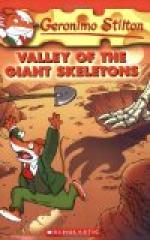“Our affairs are in such shape that they could not possibly be hurt or bettered, no matter who takes charge of them now,” Cardigan replied bitterly. “We’re about through. I waited too long and trusted too far; and now—well, in a year we’ll be out of business.”
“Suppose you start at the beginning and tell me everything right to the end. George Sea Otter informed me that you’ve been having trouble with this Johnny-come-lately, Colonel Pennington. Is he the man who has us where the hair is short?”
The old man nodded.
“The Squaw Creek timber deal, eh?” Bryce suggested.
Again the old man nodded. “You wrote me all about that,” Bryce continued. “You had him blocked whichever way he turned—so effectually blocked, in fact, that the only pleasure he has derived from his investment since is the knowledge that he owns two thousand acres of timber with the exclusive right to pay taxes on it, walk in it, look at it and admire it—in fact, do everything except log it, mill it, and realize on his investment. It must make him feel like a bally jackass.”
“On the other hand,” his father reminded him, “no matter what the Colonel’s feeling on that score may be, misery loves company, and not until I had pulled out of the Squaw Creek country and started logging in the San Hedrin watershed, did I realize that I had been considerable of a jackass myself.”
“Yes,” Bryce admitted, “there can be no doubt but that you cut off your nose to spite your face.”
There was silence between them for several minutes. Bryce’s thoughts harked back to that first season of logging in the San Hedrin, when the cloud-burst had caught the river filled with Cardigan logs and whirled them down to the bay, to crash through the log-boom at tidewater and continue out to the open sea. In his mind’s eye he could still see the red-ink figures on the profit-and-loss statement Sinclair, his father’s manager, had presented at the end of that year.
The old man appeared to divine the trend of his son’s thoughts. “Yes, Bryce, that was a disastrous year,” he declared. “The mere loss of the logs was a severe blow, but in addition I had to pay out quite a little money to settle with my customers. I was loaded up with low-priced orders that year, although I didn’t expect to make any money. The orders were merely taken to keep the men employed. You understand, Bryce! I had a good crew, the finest in the country; and if I had shut down, my men would have scattered and—well, you know how hard it is to get that kind of a crew together again. Besides, I had never failed my boys before, and I couldn’t bear the thought of failing them then. Half the mills in the country were shut down at the time, and there was a lot of distress among the unemployed. I couldn’t do it, Bryce.”
Bryce nodded. “And when you lost the logs, you couldn’t fill those low-priced orders. Then the market commenced to jump and advanced three dollars in three months—”




